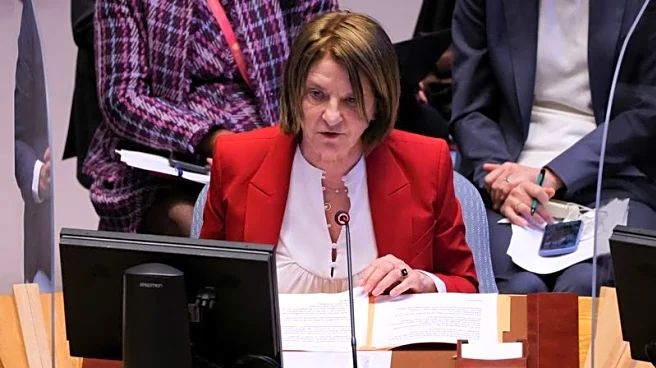What's Happening?
Brazil is facing a severe health crisis due to methanol poisoning, with 259 suspected cases and five confirmed deaths reported by the Health Ministry. The crisis is centered in São Paulo, where industrial methanol has contaminated consumer alcohol supplies, leading to rapid-onset blindness, irreversible comas, and organ failure. Federal authorities are investigating how methanol entered the consumer market, suspecting counterfeiters may have used it to cut production costs. The crisis has prompted joint operations by the Civil Police and Health Surveillance Agency, resulting in the closure of clandestine factories and arrests. Hospitals are struggling with scarce antidotes, and the government has imported fomepizole to address the shortage.
Why It's Important?
The methanol poisoning crisis in Brazil highlights significant public health and regulatory challenges. It underscores the dangers of counterfeit alcohol and the need for stringent controls on industrial chemicals. The crisis affects millions, causing fear and economic repercussions in Brazil's vibrant bar culture. It also exposes weaknesses in Brazil's healthcare system, particularly in testing and antidote availability. The situation serves as a cautionary tale for other countries regarding the importance of monitoring and regulating alcohol production and distribution to prevent similar incidents.
What's Next?
Brazil's government is expected to continue its investigation into the methanol contamination, focusing on the supply chain and potential illegal activities. Authorities may implement stricter regulations and monitoring of industrial methanol sales. The Health Ministry is working on developing a National Antidote Policy to improve access to necessary treatments. Public awareness campaigns may be launched to educate consumers about the risks of counterfeit alcohol. The crisis could lead to long-term changes in Brazil's alcohol industry and public health policies.
Beyond the Headlines
The methanol poisoning crisis raises ethical questions about corporate responsibility and the impact of greed on public safety. It highlights the need for transparency and accountability in the alcohol industry. The crisis may also lead to cultural shifts in Brazil, affecting social drinking habits and consumer trust in alcohol products. Long-term, it could influence global discussions on alcohol regulation and safety standards.










